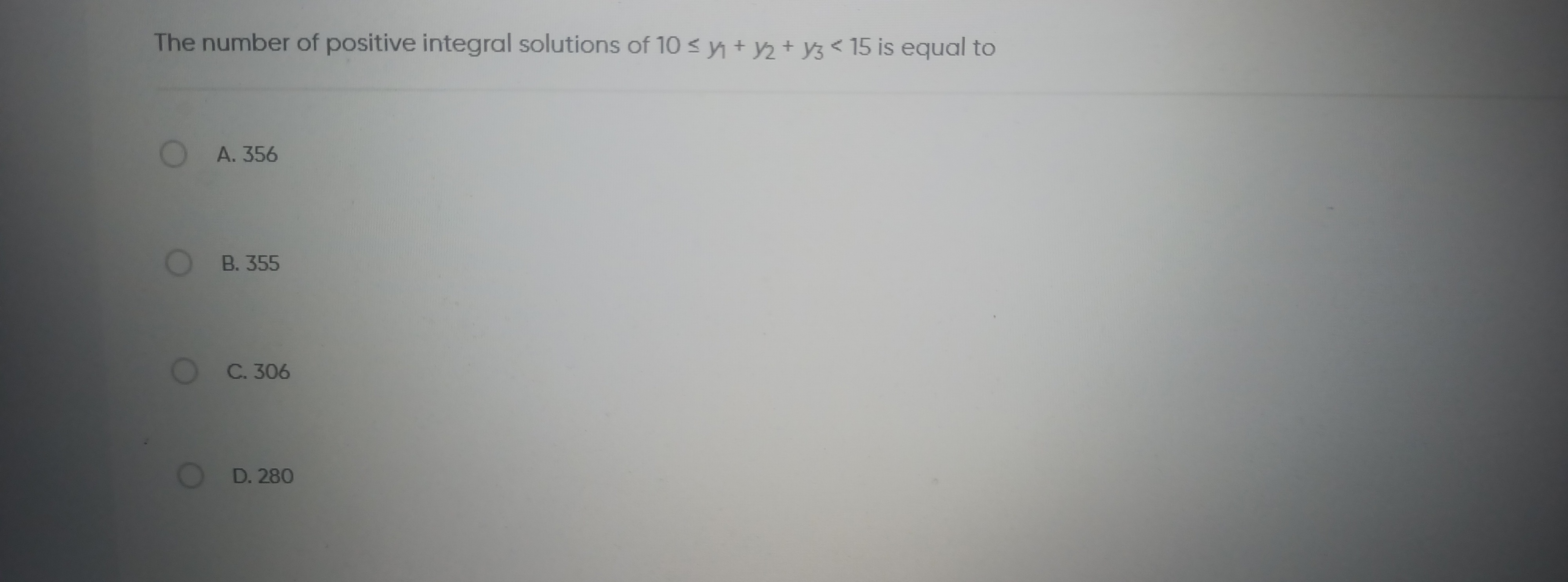Question
Question: The number of positive integral solutions of $10 \leq y_1 + y_2 + y_3 < 15$ is equal to...
The number of positive integral solutions of 10≤y1+y2+y3<15 is equal to

A
356
B
355
C
306
D
280
Answer
280
Explanation
Solution
The inequality 10≤y1+y2+y3<15 means the sum S=y1+y2+y3 can take integer values 10,11,12,13,14. The number of positive integral solutions for y1+y2+y3=k is given by the stars and bars formula: (3−1k−1)=(2k−1). We need to sum this for k=10,11,12,13,14. Total solutions = ∑k=1014(2k−1)=(29)+(210)+(211)+(212)+(213). Using the Hockey-stick identity ∑i=rn(ri)=(r+1n+1), we can rewrite the sum as (314)−(39)=364−84=280.
